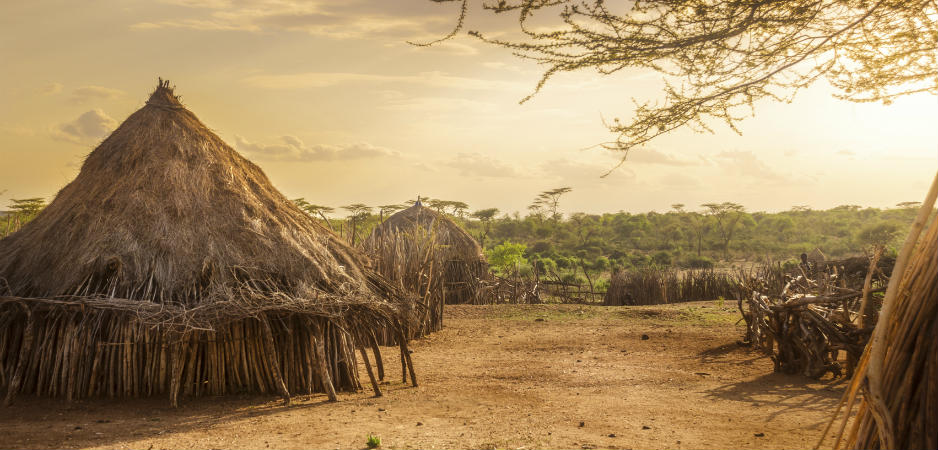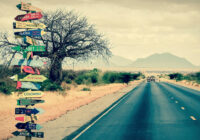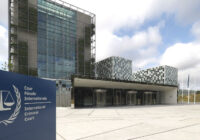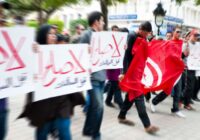African leaders get together and come up with a declaration that emphasizes the development of rural areas so that Africans stop fleeing to cities and other continents.
The end of the commodity boom has hit places like Africa and Latin America hard. In April, the International Monetary Fund (IMF) observed in its Regional Economic Outlook that “economic activity in sub-Saharan Africa has weakened markedly” and that growth in 2015 fell to 3.5%, the lowest level in 15 years. Drought in southern Africa has not helped either.
Yet there are positives in the African story. Countries such as Côte d’Ivoire, Kenya and Senegal are doing well because they are paying less in oil prices, experiencing strong private consumption and investing in infrastructure. Nevertheless, the IMF has called for a “policy reset” that includes curbing fiscal deficits and building a sustainable tax base.
African leaders have not quite heeded the IMF’s recommendations and most African economies “continued to disappoint in the second quarter.” Right from the first edition of Africa This Month, the authors have chronicled how the global economic slowdown afflicts Africa. This slowdown is causing an exodus from the African countryside to urban areas and from the continent itself to other parts of the world. African leaders met in September to map out ways to stop the mass rural exodus.
SAVING THE VILLAGE
Early this month, representatives of 30 African countries met at the 2nd Africa Rural Development Forum (ARDF) to drive “rural change” in their continent. The leaders did come up with some sound ideas. They argued for land and agrarian reform. Agriculture-led rural industrialization was part of the mix. Furthermore, the leaders emphasized public expenditure in rural areas to improve infrastructure.
The big challenge for Africa is how it acts on the ARDF’s eminently agreeable declaration. The African population, already comprising 1.2 billion people, is exploding. About 41% of the population is under 15. This means that the continent has to create jobs and create them fast. The ARDF promised to promote youth empowerment through improving education, skills and knowledge as well as increasing access to other factors of production.
This is a worthy goal in a continent where inequality is increasing as per the IMF and elites are often engaged in massive land grabs. Pessimists point out that the ARDF declaration is just hot air and will never be implemented. Optimists argue that it is a belated recognition of the importance of the land question that has bedeviled rural areas in much of Africa as it does in Colombia.
The ARDF declaration also emphasizes the green economy as well as information and communication technologies. Given the population explosion and growing urbanization, Africa is facing major environmental challenges. Deforestation, industrial agriculture, overfishing, sewage, noxious automobile fumes, heaps of plastic et al are poisoning Africa’s air, water and soil.
With new technologies such as wind, solar and geothermal energy, there is less reason for villagers to flock to shanty towns and crowded slums in the shadows of big cities. It is now possible to have electricity and connectivity in villages. African communities do not need to suffer the breakdown that English villages suffered in the 19th century. The Dickensian misery of urban poverty with its isolation, squalor and disease is not necessarily inevitable.
Most Africans live in rural areas. They still have an enduring cultural attachment to their land. Their families and communities are still tight-knit. Therefore, development of rural areas must take precedence. If those in rural areas had access to roads, electricity, health care, schools and internet, they would be less likely to leave their homes. So, saving the village might turn out be the simplest solution to uncontrolled urbanization and massive emigration.
“BIBI” COMES CALLING
In July, Binyamin “Bibi” Netanyahu embarked upon a four-country tour of East Africa, becoming the first Israeli prime minister to visit the continent in 30 years. He visited Uganda, Kenya, Rwanda and Ethiopia to boost security, health care and trade ties in a trip of enormous significance.
This month, Bibi built on his tour by meeting with African leaders during the 71st session of the United Nations General Assembly in New York. Although the meeting was a closed door affair, details have emerged that mark it out as pivotal in Israeli-African relations. Apparently, Israeli companies showcased their technological innovations to African leaders.
As per The Jerusalem Post, Energyia Global Capital, a solar power company, was one of those presenting its innovations. It already has a prominent footprint on the continent, running the first major solar power farm in East Africa under the name Gigawatt Global. Located near Lake Mugesera in Rwanda, this power plant was built in less than a year and powers more than 15,000 homes. It is an example of the green economy that ARDF envisioned. US President Barack Obama’s Power Africa backs the project.
Yosef Abramowitz, the big boss of the company, spoke about providing electricity to 600 million people in Africa and weaning another 200 million from smoke spewing fossil fuels. He announced an investment of $2 billion on the continent over the next four years. With a dramatic flourish, he declared, “a new light is shining out of Zion.”
Relations between Israel and Africa were not always so warm. Most African nations severed their ties with Israel after the 1973 Arab-Israeli War and, as Al Jazeera observes, Israel’s friendship with apartheid South Africa was off-putting. Bibi is changing Israel’s relationship with Africa by sharing technology, entrepreneurial knowhow and expertise.
In his search for friends, Bibi’s country, known also as “start-up nation,” is willing to share some of its secrets with Africa. This is good news for a continent seeking partnerships in technology and innovation to transform health care, education, agriculture, energy generation and more.
THE EARTH SHAKES RATHER TERRIFYINGLY
The sleepy town of Bukoba in northern Tanzania on the western shores of Lake Victoria was rudely awakened on the morning of September 10 by a terrifying earthquake. The quake measuring 5.7 on the Richter scale, struck at a depth of about 10 kilometers, taking the region by surprise. Seventeen people were reported dead with over 200 injured. Tremors from the epicenter fanned out into neighboring Uganda, Rwanda and Kenya.
 Fair Observer provides you deep and diverse insights for free. Remember that we still have to pay for servers, website maintenance and much more. So, donate now to keep us free, fair and independent.
Fair Observer provides you deep and diverse insights for free. Remember that we still have to pay for servers, website maintenance and much more. So, donate now to keep us free, fair and independent.
Despite the low death rate, the devastation to the region was immense. Many buildings were damaged, with almost 300 homes destroyed. Power outages crippled the area and the main hospital in town was overstretched.
This was the second major earthquake in the region in a decade. Because of the rarity of earthquakes in East Africa, the region is ill prepared for such calamities. If it were not for the low casualty rate, Tanzania would have been in dire need of international assistance. Even with the current tragedy, assistance has been forthcoming. The United Kingdom put in £2.3 million for a relief fund for victims.
While most people have worked to provide relief to victims of the earthquake, some have attempted to take advantage of them. Fortunately, two such people have been caught. Both of them are public officials who have been dismissed from their jobs for setting up fake accounts to embezzle funds from the relief efforts.
In the January edition of Africa This Month, the authors pointed out how the election of Tanzania’s President John Pombe Magufuli was a breath of fresh air. He has been a change from many of the mediocre African leaders who have ruled the roost in the past. The “Bulldozer, as Magufuli is known as, is doing his bit to change things with his no nonsense approach.
However, tackling corruption is like building Rome. Both cannot be done in a day. As Reuters observes, Tanzania is ranked 117 out of 168 nations in Transparency International’s 2015 Index. Clearly, a lot remains to be done. This means that delivery of public services, including relief after earthquakes, tends to leave a lot to be desired.
Tanzania teaches humanity two valuable lessons. First, it helps to prepare for disasters even if they happen to be rare. Second, corruption is a scourge that every society needs to get rid of because it enables those in power to rob from the weak and the vulnerable.
WAS GANDHI RACIST?
In Ghana, many are calling for the removal of a statue of Mahatma Gandhi from a university campus. This statue was a gift from India when its president visited in mid-June. Gandhi spent 21 years in South Africa where he fought for the rights of his fellow-countrymen.
It turns out that this champion of nonviolence and scourge of the British Empire believed that Indians were better than “savages or the Natives of Africa.” An online petition calling for the removal of Gandhi’s statue quotes many pejorative comments that he made regarding Africans. In 1896, he held the African to be a “raw Kaffir whose occupation is hunting, and whose sole ambition is to collect a certain number of cattle to buy a wife with and, then, pass his life in indolence and nakedness.”
The petitioners have a point. The British imported Indians into Africa to bolster their power. Indians worked in the mines, built railway lines and sold British goods, furthering the interests of the British. Today, Indians continue to be some of the wealthiest individuals, particularly in East Africa. They continue to lead separate lives from the local population. Many apartment blocks for Indians in cities such as Nairobi and Eldoret still do not rent out to Africans.
In the May edition of Africa This Month, the authors pointed out how Africans suffer racism on a daily basis in India, and how the flailing state fails to protect them. After the death of a Congolese student, African nations boycotted Africa Day celebrations, publicly slapping India in the face. If Ghanaians remove Gandhi’s statue, it will heap further embarrassment on a country that is seeking big power status.
The controversy about Gandhi proves how history poses uncomfortable questions. The Rhodes Scholarship to Oxford, which thousands dream about and which has been awarded to people like Bill Clinton, was created out of the loot of treasures from Africa. It is named after a ruthless man who stole with impunity from this wonderful continent. Does that mean that Africans boycott the scholarship named after this robber baron and pull down his statues?
Similarly, Christianity came to Africa on the notion of mission civilisatrice. Christian soldiers were urged to “spread the peaceful gospel with a Gatling gun” in the same manner as the conquistadores of Latin America. Does this mean that Africans leave churches en masse and reclaim their old tribal names instead of current Christian ones?
Rajmohan Gandhi, a historian and biographer of his grandfather, states that Gandhi was often “ignorant and prejudiced about South Africa’s blacks.” He adds that India’s beatified leader was “an imperfect human being,” but he goes on to point out that “the imperfect Gandhi was more radical and progressive than most contemporary compatriots.” Is that enough for Ghanaians and Africans to forgive Gandhi for his prejudice, narrow-mindedness and racism?
These are questions to which there are no clear answers, but the fact that Africa is now questioning its tortured past is refreshing. Africans have long suffered from racism not only in Europe and the Americas, but also in Asia and the Arab world. The questioning of as haloed a figure as Gandhi shows the critical inquiry, the cultural confidence and the new bravery that, bit by bit, might transform this great continent.
The views expressed in this article are the author’s own and do not necessarily reflect Fair Observer’s editorial policy.
Photo Credit: Luisa Puccini
Support Fair Observer
We rely on your support for our independence, diversity and quality.
For more than 10 years, Fair Observer has been free, fair and independent. No billionaire owns us, no advertisers control us. We are a reader-supported nonprofit. Unlike many other publications, we keep our content free for readers regardless of where they live or whether they can afford to pay. We have no paywalls and no ads.
In the post-truth era of fake news, echo chambers and filter bubbles, we publish a plurality of perspectives from around the world. Anyone can publish with us, but everyone goes through a rigorous editorial process. So, you get fact-checked, well-reasoned content instead of noise.
We publish 2,500+ voices from 90+ countries. We also conduct education and training programs
on subjects ranging from digital media and journalism to writing and critical thinking. This
doesn’t come cheap. Servers, editors, trainers and web developers cost
money.
Please consider supporting us on a regular basis as a recurring donor or a
sustaining member.
Will you support FO’s journalism?
We rely on your support for our independence, diversity and quality.






